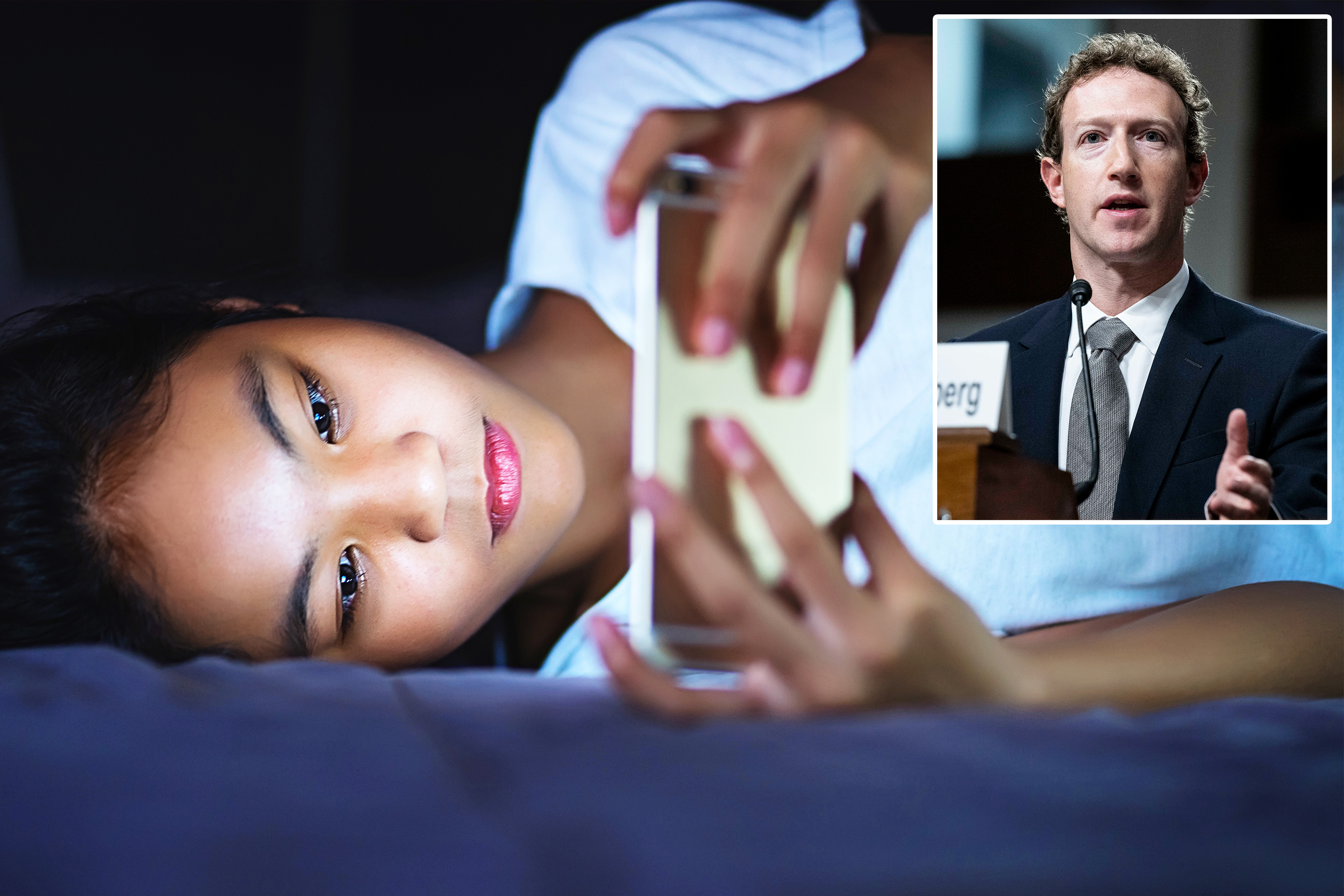
During Tuesday’s US Senate Judiciary committee hearing, Lindsay Graham hit Meta CEO Mark Zuckerberg with a damning accusation.
“You have blood on your hands,” the South Carolina senator said as the gallery of spectators cheered. “You have a product that’s killing people.”
Zuckerberg was joined by the CEOs of TikTok, Snapchat, Discord and X (formerly Twitter) to answer for the damage their platforms have done to Generation Z’s mental health and wellbeing.
Graham’s accusation might seem hyperbolic at face value, but he’s right. A unprecedented epidemic of depression, anxiety, self-harm and suicide has erupted among young people — and it’s only gotten worse as social media has become more prevalent.
This is an emergency that lawmakers are absolutely right to call attention to, but that’s not enough. It’s so urgent that we all must play a role in combating it.
Between 2010 and 2020, anxiety among American undergraduate students soared by 134% and depression by 106%.
Self harm-hospitalizations for girls ages 10 to 14 has soared by 188%, and suicide rates among boys and girls in that age group more than doubled. In fact, nearly a third of teen girls have seriously contemplated suicide.
The figures might seem abstract, but there are countless thousands of families who can attest that a childhood spent in the virtual world destroyed their lives.
Families who say social media caused their children’s suicides were in attendance Tuesday, and Senator Josh Hawley of Missouri forced Zuckerberg to face them.
“There are families of victims here,” he said to Zuckerberg, whose company owns both Facebook and Instagram. “Have you apologized to the victims? Would you like to do so now? They’re here. You’re on national television.”
Zuckerberg hesitated, turned around awkwardly and delivered a floundering and lawyerly response — saying he’s “sorry for everything you have all been through” and that their experiences are “why we invest so much and we are going to continue doing industry-wide efforts.”
It was a tense moment that exposed just how devastating social media’s effect has been. And, while the senators deserve credit for calling attention to the issue, there’s no simple legislative fix here.
There’s some low-hanging fruit, like requiring social media platforms to more earnestly enforce minimum age requirements. But lawmakers’ hands are largely tied by Section 230, which protects companies from liability for how individuals use their platforms.
The truth is, though these senators have the ability to put the Big Tech behemoths’ feet to the fire, lasting change won’t come from the top down. It’s time for us all to rally together to loosen social media’s grip on our society.
We all — parents, grandparents, educators, local lawmakers and even people just a few years older — have roles to play in the fight to protect kids.
Jonathan Haidt, professor of social psychology at NYU’s Stern School of business, has been ringing the alarm bells on the dangers of social media.
In his upcoming book, “The Anxious Generation: How the Great Rewiring of Childhood Is Causing an Epidemic of Mental Illness,” out next month, Haidt calls on communities to rise to the occasion.
Families can keep Pandora’s box closed by staving off giving their kids smart phones or allowing them on social media. They can do a family-wide digital detox once a week.
Local school boards can ban phones in school. Many have done so, and have found success. Communities can emphasize outdoor play over time online.
Even the simplest of moves — like charging cell phones outside of the bedroom at night, or banning them at the dining room table — are tiny drops that can cause cultural tides to shift.
It’s not about banning social media or banishing smartphones outright. What we need is a revival of what childhood and adolescence is all about.
The mental health epidemic, in my view, isn’t directly caused by time spent on Instagram or TikTok. The real problem is what that screen time supplants: healthy, wholesome activities and rites of passage.
As screen time has soared — with half of teens saying they’re online “almost constantly” — the rates of kids getting drivers’ licenses, going on dates and hanging out with friends in real life have plummeted.
Childhood has been hollowed out by technology and mindless scrolling. Algorithms have gobbled up adolescence. What’s left is a vacuous upbringing spent in the virtual world.
Progress can be made on Capitol Hill. But the most important change must come at the community, school, family and even individual levels.














